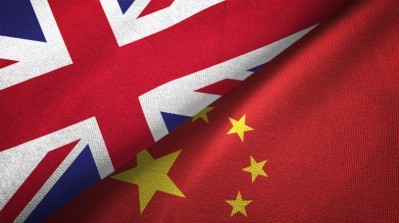China animal testing: Exemptions for testing on ‘ordinary’ cosmetics start in May - officials
![Imported ‘ordinary’ cosmetics will not be required to undergo animal testing in China from May 1. [Getty Images]](https://www.cosmeticsdesign-europe.com/var/wrbm_gb_food_pharma/storage/images/_aliases/wrbm_large/publications/cosmetics/cosmeticsdesign-asia.com/article/2021/03/08/china-animal-testing-exemptions-for-testing-on-ordinary-cosmetics-start-in-may-officials/12250224-1-eng-GB/China-animal-testing-Exemptions-for-testing-on-ordinary-cosmetics-start-in-May-officials.jpg)
Furthermore, authorities will begin to conditionally accept data derived from alternative animal testing methods for new cosmetic ingredients registration and notification.
The move to exempt imported ordinary cosmetics would mark China’s biggest step forward towards cruelty-free practices.
Ordinary cosmetics, which make up the bulk of the market, and are defined by China as products that do not have claims such as anti-ageing, skin whitening or anti-acne.
The move was announced through NMPA’s release of the finalised versions of the Provisions for Management of Cosmetic Registration and Notification Dossiers and Provisions for Management of New Cosmetic Ingredient Registration and Notification Dossiers on March 4.
Provisions for Management of Cosmetic Registration and Notification Dossiers was previously known as Instructions for Cosmetic Registration and Notification Dossiers.
The regulations aim to further standardise and guide the registration and filing of new cosmetic raw materials and products. It details the documentation requirements for the application, modification, renewal, and cancellation of cosmetic registration and notification.
According to the NMPA, one of the main goals of the policy was to “fully consider and adopt the opinions of importing companies that some countries and regions have implemented the marketing ban on animal testing of cosmetics and cannot submit animal test data, and conditionally accept the toxicology test data of animal alternative methods.”
Conditions for exemption
Companies that wish to qualify for animal testing exemption with require to meet two prerequisites.
First, they must obtain a good manufacturing practices (GMP) certificates issued by the relevant regional authorities where they are located.
Dr Alain Khaiat, president of The Cosmetic, Toiletry and Fragrance Association of Singapore (CTFAS), said this would likely not be an issue for companies located in regions like ASEAN, where GMP certifications are handed out by government agencies.
However, things are less certain for the US and Europe, where associations deal with GMP certifications.
He noted that this leaves things up in the air as stakeholders try to figure out this ruling. “All the regulation says it has to be authorities and that cannot be an association.”
In addition, it would be mandatory for companies to provide safety assessment results can fully confirm the product safety.
However, companies will still be required to conduct animal testing regardless if their product falls under three conditions: If it has claims targeting infants and children, if it is using new cosmetic ingredients under the three-year monitoring period, or if the notifier, responsible person or manufacturer is listed as a key supervision target according to NMPA’s quantitative rating system.
A long time coming
This ruling follows the implementation of Cosmetics Supervision and Administration Regulation (CSAR), which came into effect on January 1. It signalled that China was taking steps to remove the mandatory animal testing requirements for imported cosmetics.
Previously, China’s laws require tests on animals for all imported cosmetics. Since 2014, it has made allowances for products were sold via cross-border e-commerce.
The laws also allowed foreign companies to domestically manufacture their cosmetics as a condition to bypass pre-market animal testing.
When the new measures come into effect, it would bring the regulation of imported ordinary cosmetics in line with the requirements for those made domestically in China.
In January, France became the first EU country to qualify for exemptions on animal testing for general-use cosmetics exported to China after its National Agency for the Safety of Medicines and Health Products (ANSM) developed a dedicated platform enabling manufacturers to obtain necessary certificates and approvals.
This opens up the world’s second-largest beauty market new beauty brands that have previously avoided expanding into China over ethical values.
![The approved approach involves a three-step method for assessing skin sensitisation and a bolt-on test to predict allergen potency [Getty Images]](https://www.cosmeticsdesign-europe.com/var/wrbm_gb_food_pharma/storage/images/_aliases/wrbm_medium/publications/cosmetics/cosmeticsdesign-europe.com/article/2021/06/30/animal-free-testing-for-skin-sensitisation-allergen-potency-from-basf-and-givaudan-receives-oecd-approval/12607502-1-eng-GB/Animal-free-testing-for-skin-sensitisation-allergen-potency-from-BASF-and-Givaudan-receives-OECD-approval.jpg)
![The New Science Programme will be coordinated by a central advisory board and aims to drive forward non-animal safety assessment capabilities, regulatory use of these alternatives, and education and training across industry [Getty Images]](https://www.cosmeticsdesign-europe.com/var/wrbm_gb_food_pharma/storage/images/_aliases/wrbm_medium/publications/cosmetics/cosmeticsdesign-europe.com/article/2021/06/15/cosmetics-industry-unveils-animal-free-safety-assessment-new-science-programme-set-to-launch-2022/12568515-1-eng-GB/Cosmetics-industry-unveils-animal-free-safety-assessment-New-Science-Programme-set-to-launch-2022.jpg)

![Regulatory experts believe cosmetics regulation in Asia Pacific can become more harmonised. [Getty Images]](https://www.cosmeticsdesign-europe.com/var/wrbm_gb_food_pharma/storage/images/_aliases/wrbm_medium/publications/cosmetics/cosmeticsdesign-asia.com/headlines/regulation-safety/apac-cosmetic-regulation-experts-break-down-strategies-for-more-regulatory-alignment-in-the-region/12277237-1-eng-GB/APAC-cosmetic-regulation-Experts-break-down-strategies-for-more-regulatory-alignment-in-the-region.jpg)






![Chinese study highlights mental health challenges in atopic dermatitis, emphasising holistic patient care. [Getty Images]](https://www.cosmeticsdesign-europe.com/var/wrbm_gb_food_pharma/storage/images/_aliases/wrbm_tiny/publications/cosmetics/cosmeticsdesign-asia.com/headlines/formulation-science/chinese-research-linking-atopic-dermatitis-to-mental-health-underscores-need-for-holistic-care/17040623-1-eng-GB/Chinese-research-linking-atopic-dermatitis-to-mental-health-underscores-need-for-holistic-care.jpg)








